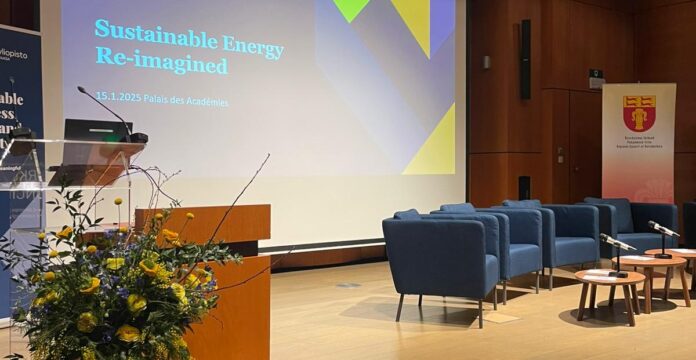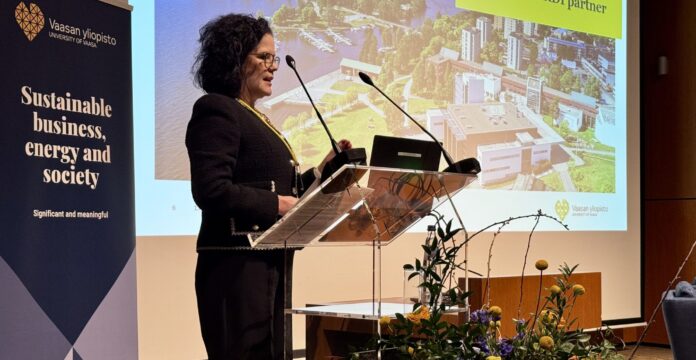I will take a brief look at the stages of the academic career path, starting with the first wonders in the university lecture hall, ending with the public defense of the doctoral thesis dissertation. At the very end of this text, a few words about the life after getting the doctorate. My interpretation is completely subjective and based on my own experiences and observations. In some disciplines, procedures may differ.
Bachelor’s degree
Usually the academic career begins by applying to a university. Today, we are talking about a 3-year bachelor’s degree, after which the student will continue to a 2-year master’s degree. Although the degrees are independent, you often don’t even notice the change – you often study both degrees at the same university and possibly even in the same major or in the same discipline.
Usually it takes roughly three years to graduate as a bachelor. In this time, it is possible to study the basic concepts of the discipline or major and what is really interesting from major’s point of view. The basic concepts are strongly linked to the world view which the student begins to understand from the beginning of the studies. Of course, there are countless different world views and many disciplines can ask different questions about the same phenomenon.
Studying in the bachelor’s stage is often very structured nowadays. Many programmes have their own recommendations on course progression. A variety of language and communication studies, minors or modules are often added to this. Exchange studies at a foreign university are also possible.
This phase usually culminates in a bachelor’s thesis that asks questions about something — or at least tries to. The bachelor’s thesis teaches the student to produce scientific text. This is a skill that will be refined over and over again.
Master’s
Some wise person said in some coffee room conversation that the biggest difference between the bachelor’s and the master’s is that in the former the basic concepts are more or less remembered by the heart and in the master’s stage they are questioned.
In the master’s phase, more and more academic texts are usually produced. Many of the essays and papers are perhaps involved in some kind of project work, and maybe the students start to look for more scientific sources.
In my own interpretation, the student begins to understand what scientifically produced knowledge is and how it differs from other kinds of knowledge. At the same time, self-criticalness is also increasing.
The master’s phase culminates in a master’s thesis. It is already a little longer and, above all, a deeper study compared to the bachelor’s thesis. Master’s thesis often takes a deeper look at a particular theme and the student begins to catch up with scientific writing.
Today, many theses are made in cooperation with, for example, business life. On the other hand, there is nothing wrong with approaching the research problem by yourself have set from a mere point of view of creating new knowledge or understanding.
Unfortunately, often academic careers do not proceed further. Why? I would not like to think that the many do not have sufficient ability to grasp doctoral studies. Perhaps you can look for an explanation of the uncertainty of the finance issues of the doctoral studies? On the other hand, at the best case, the interest in doing research is growing. Perhaps some of the students employ themselves either as a research assistant or as a project researcher. This makes the transition to the next stage more straightforward. In any case, the leap from the master’s degree to the doctoral degree is long.
Doctor
You’re already getting into the depths of the academic world when you start the doctoral studies. Perhaps you can apply for funding for your own research project, participate in various development and research projects, some give lectures for the students in the bachelor and master phase. Each doctoral student has at least two supervisors at the University of Vaasa who assist and guide the doctoral student at each stage.
The most important and sacred thing about doctoral studies is the doctoral dissertation. At the University of Vaasa, the doctoral dissertation is either 180 or 200 ECTS depending on the field of science. In addition, when other studies reach 40 or 60 ECTS, a total number of the doctoral degree consists of 240 ECTS. And all these should serve two purposes: first, self-growth as a researcher, and secondly, own doctoral thesis and the theme of your research. So, in an ideal situation, everything is built around the theme of the dissertation.
Now new knowledge is being produced. This is the largest difference between the period of the doctoral level and the previous levels. The main objective of the dissertation is to produce new scientific knowledge. At the University of Vaasa, the doctoral dissertation may consist of at least three scientific articles or it may be a monograph. The doctoral students usually attend many seminars and conferences. These allow the students to share their own research results with other experts.
Another significant difference compared to previous phases is the structure of studies. At this stage, you can influence your studies at a different level. As mentioned before, everything should serve the progress of your research. No one will tell you that these courses must be carried out in a certain order, but you can pick courses quite freely at national level, for example, or from international doctoral training networks in your field of science.
The third important difference is the funding of studies. There is no one right way to get funding. Many do their research in an employment contract with the university (doctoral researcher). This will allow to focus on research itself and, to a small extent, to participate in teaching. Another way is to participate in some research project. Ideally, the topic of the research project should be closely related to the theme of your own dissertation. You can also finance your studies with grants from foundations. Part-time is also possible, but not the preferred option.
Some wise person somewhere — probably back in the coffee room again —described that making a doctoral thesis teaches at least how to live in uncertainty. It’s a great crystallization. There are many levels of uncertainty. First of all, the fact that you don’t really know what all this is about. But you will find out as your research proceeds. Secondly, uncertainty is experienced in publishing. Scientific publication is always uncertain, as the publication process involves peer review. It means that other researchers in the field read the texts carefully and make critical remarks or may even suggest rejection of the article. All of this happens anonymously. The third element of uncertainty is financing. Where do you get the next year’s salary? This in turn increases the amount of work as the next application for funding should be written at the end of the previous period.
In the doctoral stage many begin to notice the down sides of the academic world. It is about tenacity to continue. The research project won’t go always as planned. It may take a long time for a new text to emerge. Sometimes it is easy to start to question your own research papers if you get a negative statement on an article that you considered to be good. Doing research is often described to be lonely – at least in the early stages, when you have not yet formed your own networks.
The doctoral stage could be described as running several marathons in a row rather than as a 100-meter sprint. Sometimes you break up and question your strength, but you have to move on. The completion of the project also tells a lot about the person. In addition to the mere expertise, the doctors are persistent, goal-oriented, top-notch and sought-after experts in their field.
The doctoral phase culminates in the public defence, that academic ritual in which the opponent questions all the choices you have made during the last few years. And you then have to justify your choices and at same time remember the definitions of your main concepts by heart. After that there is some time to relax in the evening — but not until after the dissertation celebration party. There, too, you have to give speeches and remember to thank those who have earned the praise.
Post doc phase
This is the stage when you realize at the latest that you really don’t understand much about anything. Not even about the subject you spent your last years with. At the latest, now is the time to think about the next projects. Usually they have already been started already
In the post doc phase, you might get the position of a researcher, project researcher or university teacher. And if you enter the tenure track system, what about an assistant professor?
Now you are competent to apply for larger projects. You are can also be a supervisor for master’s theses (often earlier also) and doctoral dissertations. Or you can take on increasing responsibility for educating and teaching. Depends on which way you want to take your expertise.
Niklas Lundström, D.Sc. (Admin.)
Senior Specialist in Doctoral Education, University of Vaasa





